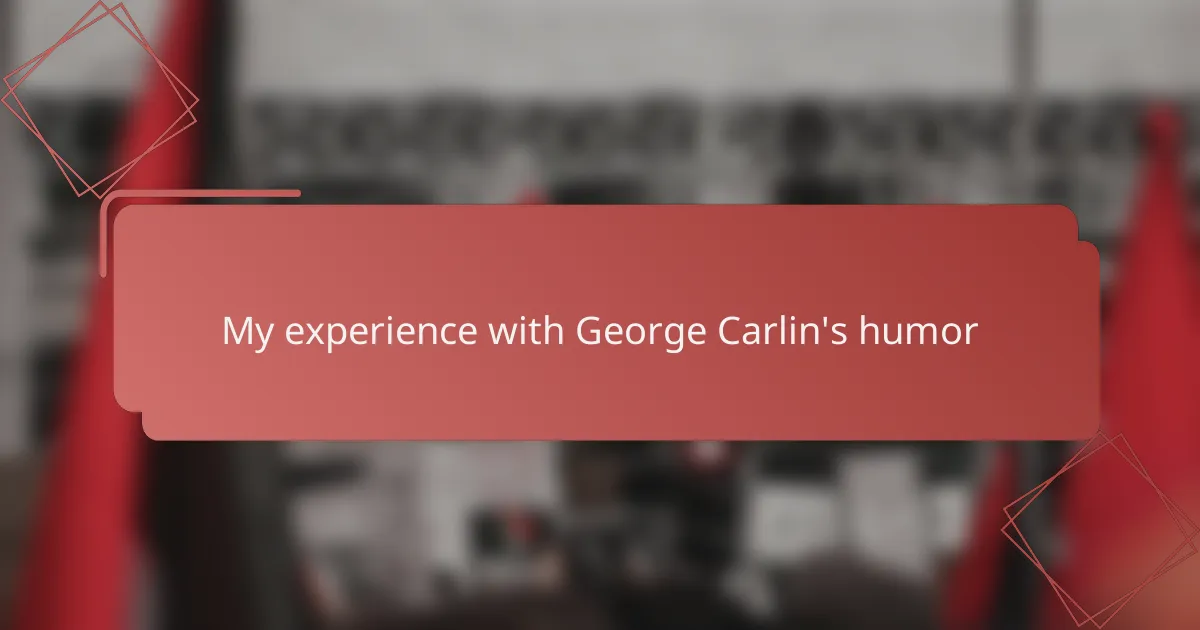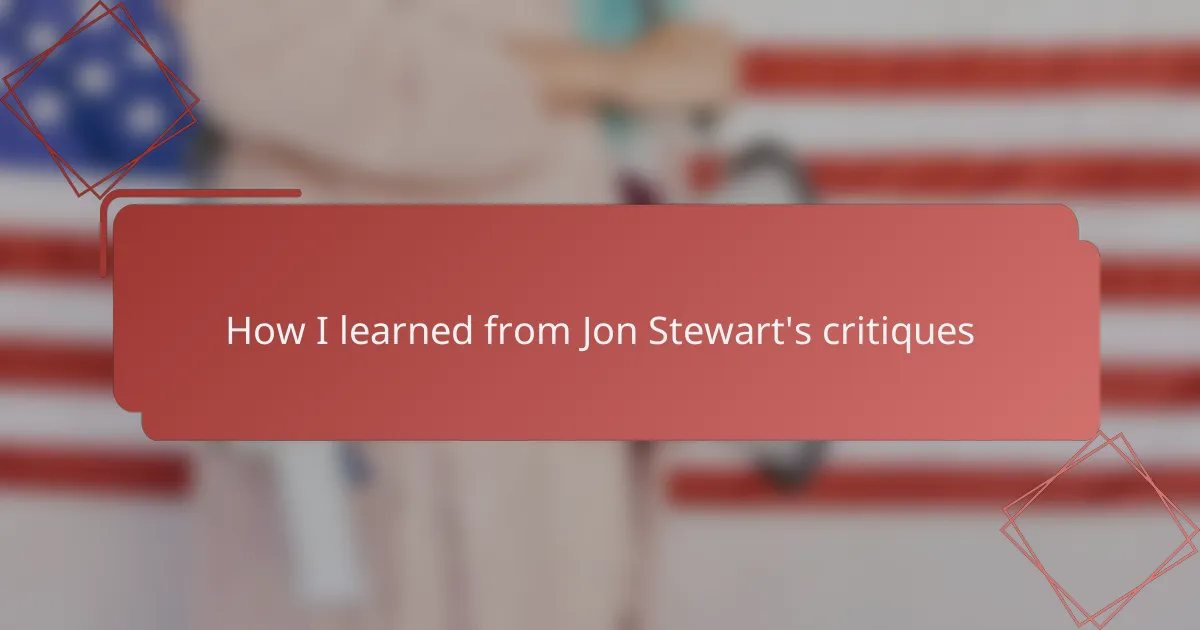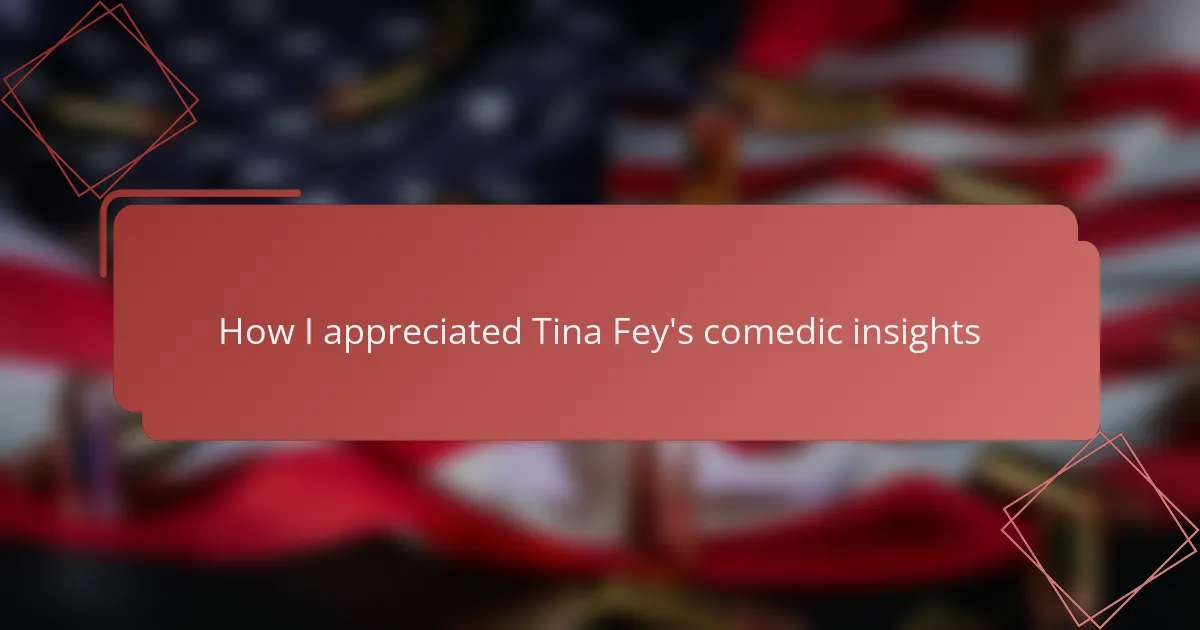Key takeaways
- Stephen Colbert effectively uses irony and a fictional persona to critique political absurdities while keeping the audience engaged.
- His satire balances humor with insightful commentary, making complex political issues accessible and thought-provoking.
- Colbert’s techniques, such as exaggeration and repetition, enhance the memorability and impact of his satire on viewers.
- His unique style fosters a personal connection, inviting audiences to reflect on important issues while enjoying the humor.
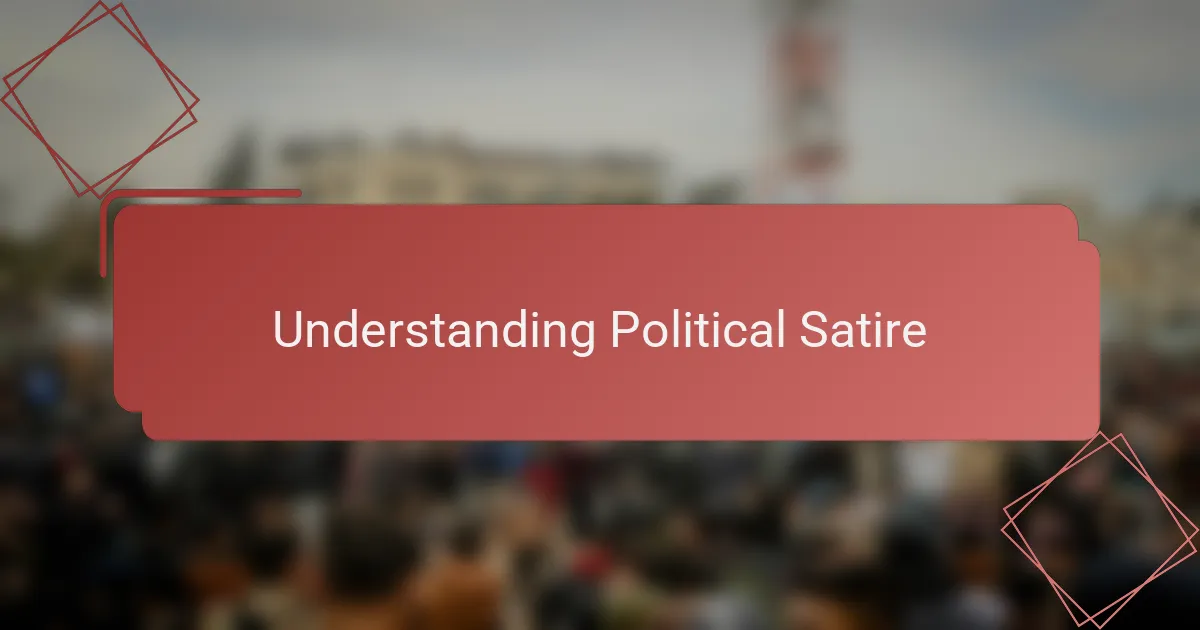
Understanding Political Satire
Political satire is a powerful tool that uses humor and irony to critique political figures and policies. From my perspective, it’s not just about making people laugh; it’s about making them think critically about the world around them. I’ve often found that the best satire exposes uncomfortable truths in a way that feels approachable rather than preachy.
When I first encountered Stephen Colbert’s work, I was struck by how he blends sharp wit with layered meaning. His satire doesn’t just mock; it educates by peeling back the facade politicians often hide behind. This approach feels both clever and necessary in today’s media landscape.
| Aspect | Stephen Colbert’s Satire Technique |
|---|---|
| Approach | Uses irony and persona to highlight political absurdities |
| Tone | Sarcastic yet insightful, often mixing humor with serious critique |
| Delivery Style | Character-driven, especially through his “Colbert Report” persona |
| Audience Engagement | Encourages critical thinking by challenging viewers’ assumptions |
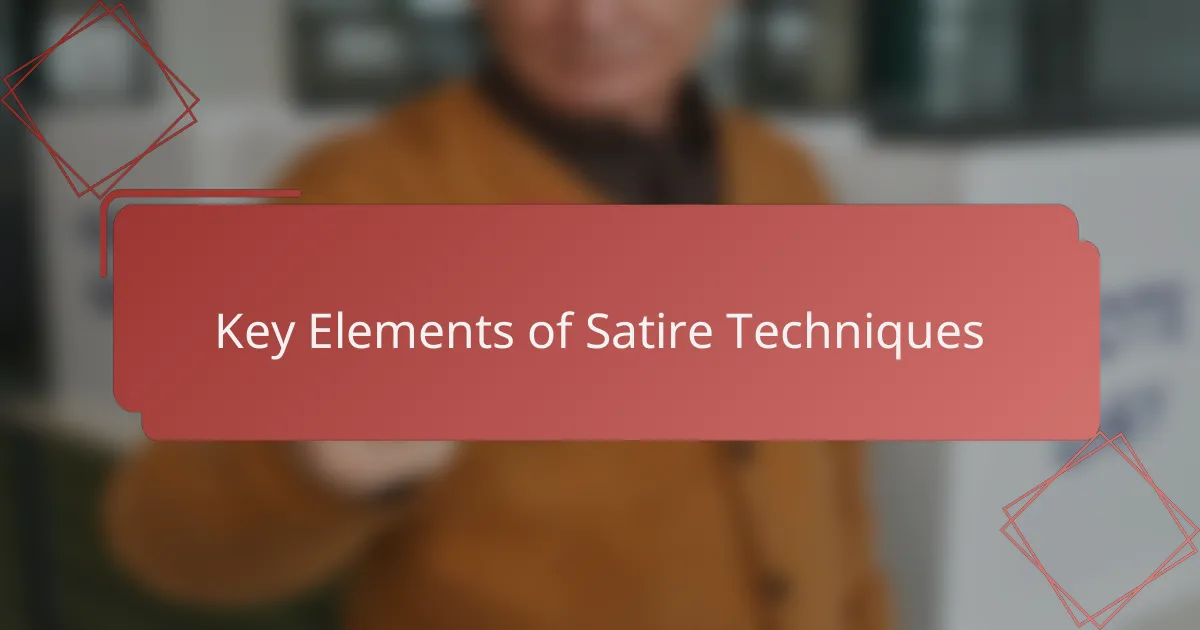
Key Elements of Satire Techniques
One thing I’ve noticed about effective satire is how it often hinges on irony—the kind that flips expectations and reveals contradictions in politics. It’s like holding up a mirror, but the reflection is distorted just enough to make you laugh and pause simultaneously. Have you ever caught yourself laughing, only to realize the joke was actually pretty sharp criticism? That’s the sweet spot satire aims for.
Tone plays a crucial role too. From my experience watching Colbert, his sarcastic delivery isn’t just for laughs; it adds a layer of insight that deepens the message. The balance between humor and seriousness makes the critique digestible, even when the underlying issues are complex or uncomfortable.
Another key element is the use of a persona or character. When Colbert adopts his “Colbert Report” persona, he creates a filter that amplifies absurdities without alienating the audience. I’ve found this technique brilliantly effective because it distances the satire just enough to make it entertaining, yet close enough to hit home. It raises the question: How much more powerful is a critique when it’s wrapped in a compelling character?
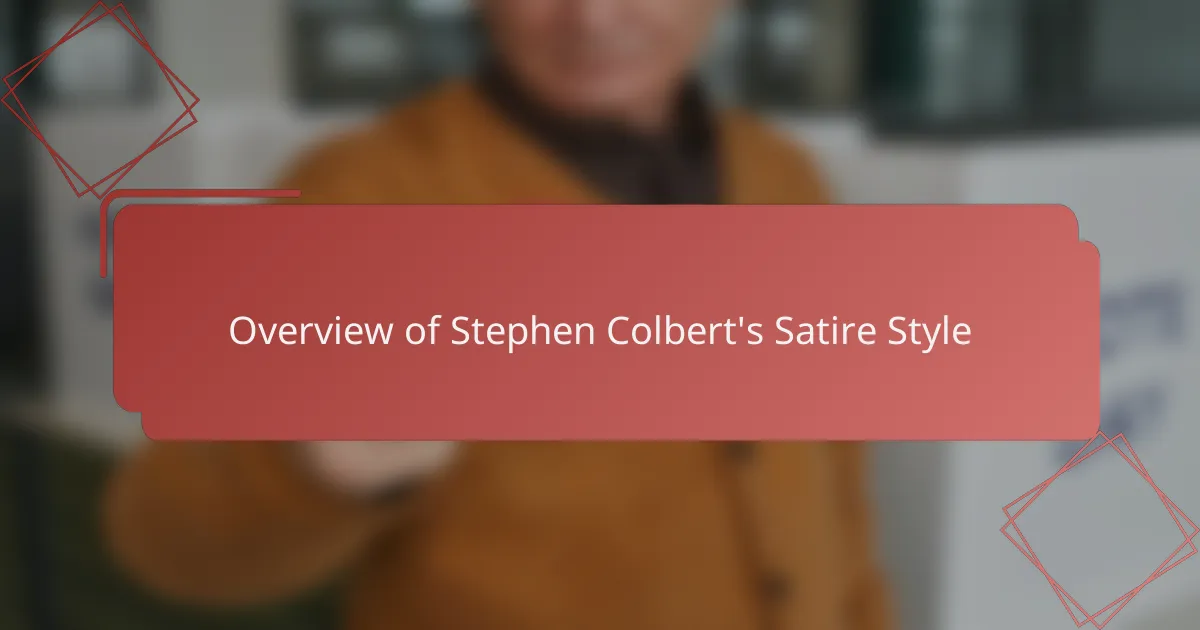
Overview of Stephen Colbert’s Satire Style
Stephen Colbert’s satire style is a masterful blend of irony and character-driven humor that always keeps me on my toes. His ability to adopt a persona—most famously his pompous conservative commentator—makes the satire feel personal and direct, not just abstract commentary. I remember watching an episode where his exaggerated seriousness actually made me laugh out loud, even as the underlying message hit hard.
What stands out to me most is how Colbert uses layered irony to make complex political issues accessible. He doesn’t just mock; he invites viewers to think critically by exposing hypocrisy in a way that’s both clever and entertaining.
- Uses a fictional persona to deliver satire, enhancing emotional impact
- Employs irony to highlight contradictions in political discourse
- Blends humor with sharp political insight for accessibility
- Engages the audience by making satire feel personal and reflective
- Uses repetition and exaggeration to reinforce key messages
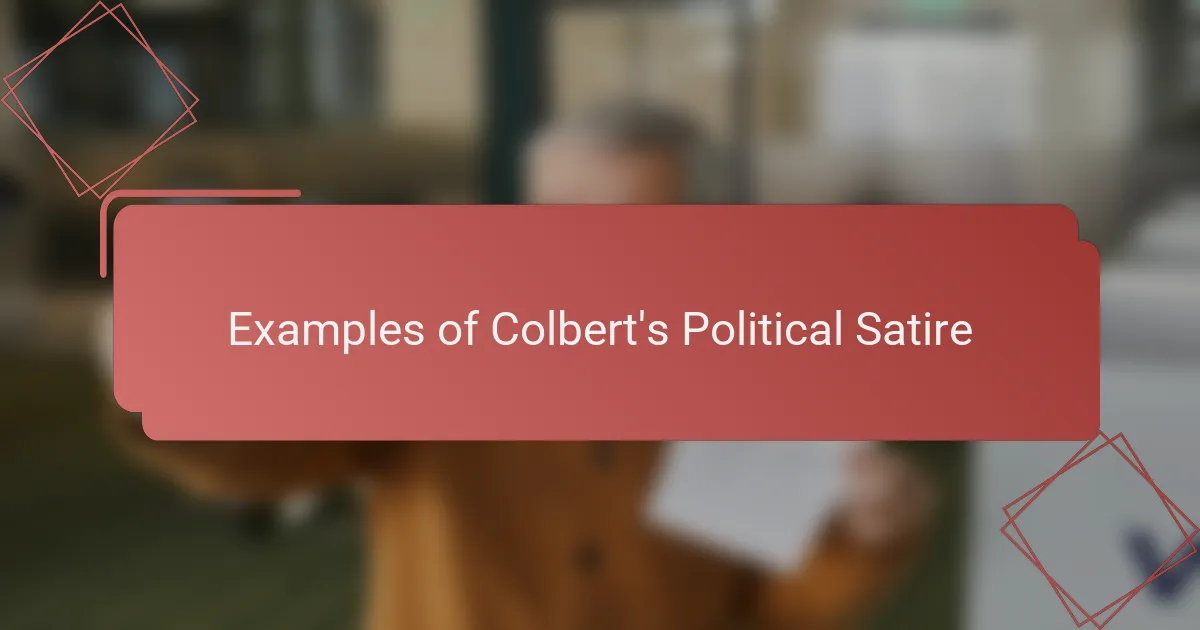
Examples of Colbert’s Political Satire
Stephen Colbert’s satire often hits hardest when he adopts the persona of an exaggerated pundit, blending absurdity with sharp political critique. I remember watching one of his segments during a contentious election season where his over-the-top praise for a politician was so ridiculous yet pointed that it made me laugh and think deeply about media bias at the same time.
Some of his most memorable satire techniques come through in specific examples, such as:
– His mock endorsement of controversial policies to highlight their flaws
– Using irony to expose contradictions in political messaging
– Employing parody by imitating political figures’ speech patterns to reveal underlying absurdities
– Creating fictional scenarios on his show that exaggerate real political issues to absurd levels
– Engaging the audience emotionally by mixing humor with genuine frustrations felt by voters
These examples reveal why Colbert’s satire feels both entertaining and intellectually stimulating to me—it’s the perfect balance of humor and insight.
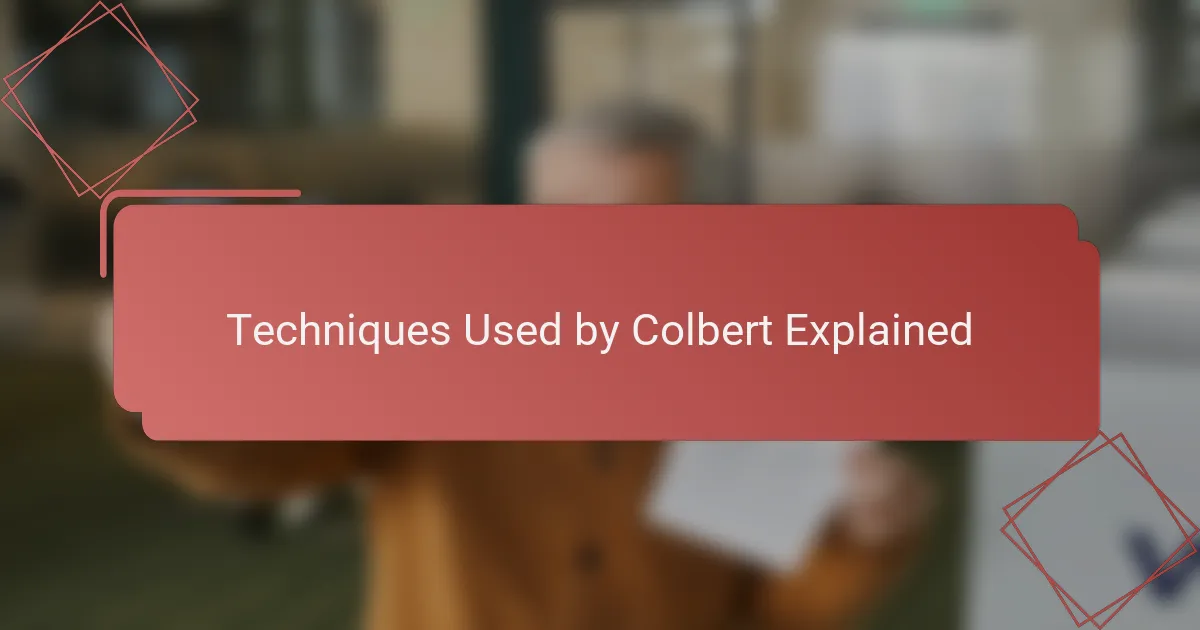
Techniques Used by Colbert Explained
One of the techniques I find most fascinating in Colbert’s satire is his use of irony paired with a fictional persona. By adopting an exaggerated character—often a pompous political pundit—he creates a space where absurdity becomes a tool to dissect real-world issues. Have you ever noticed how this not only makes the satire funnier but also sharper? It’s like he’s inviting us to see the contradictions in politics through a deliberately distorted lens.
Colbert’s tone is another crucial element. His sarcasm isn’t just for show; it’s layered with insight that challenges viewers to think beyond the punchline. From my experience, that balance between humor and earnest critique is what keeps the audience engaged without turning the message into a lecture. It reminds me of moments when I found myself laughing, only to realize the joke was actually exposing a serious flaw in political behavior.
Repetition and exaggeration also stand out as powerful tools in his repertoire. By emphasizing certain points repeatedly or pushing scenarios to ridiculous extremes, he drills key messages into our minds. This technique makes the satire stick with me long after the segment ends, which I think is the hallmark of effective political humor. Don’t you find that when something is both funny and over-the-top, it somehow becomes more memorable—and meaningful?
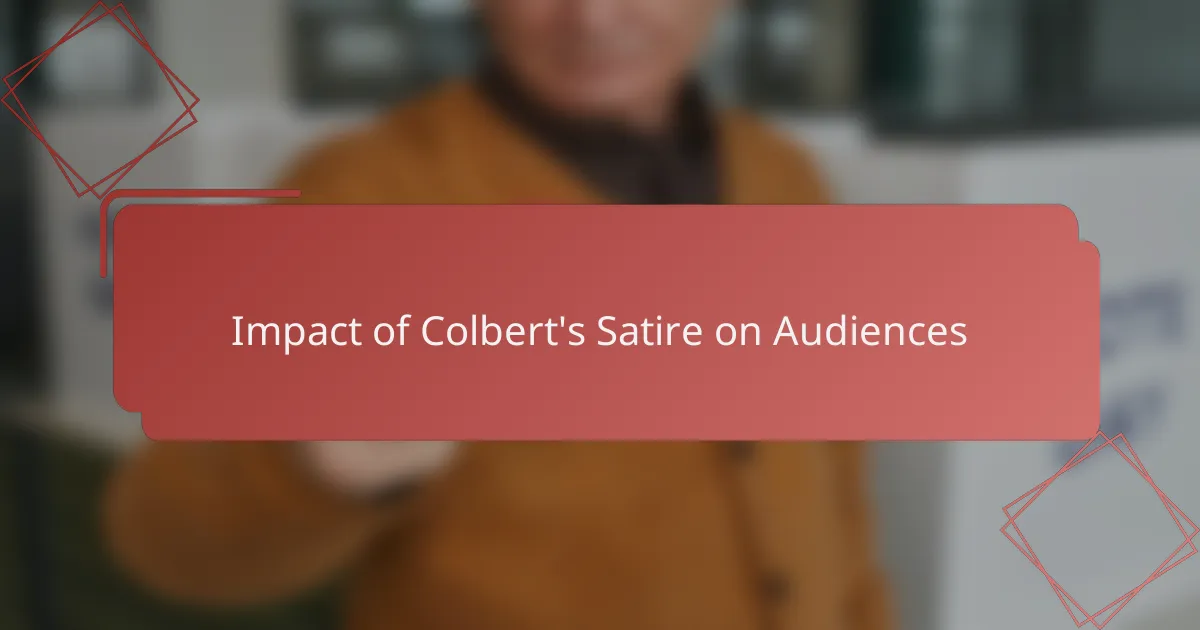
Impact of Colbert’s Satire on Audiences
Stephen Colbert’s satire has a unique way of drawing audiences in, making them laugh first and reflect later. I’ve noticed how his sharp irony often catches viewers off guard, prompting a double take that leads to deeper understanding. It’s like he sneaks serious political critique in under the guise of comedy, which keeps people engaged without feeling overwhelmed.
What really strikes me is how his use of a distinct persona creates a personal connection with the audience. When Colbert slips into character, it’s not just humor for humor’s sake—it feels like he’s inviting us into a conversation about politics that’s both disarming and thought-provoking. I remember catching myself nodding along and then suddenly realizing, “Wow, he’s saying something important here,” even as I was still laughing.
Have you ever experienced a joke that stuck with you long after you heard it? That’s exactly what Colbert achieves by blending exaggeration and repetition in his satire. From my perspective, this technique makes complex issues feel accessible and memorable. The humor lingers, but so does the critical thinking it inspires—and that impact on audiences is what sets his satire apart.
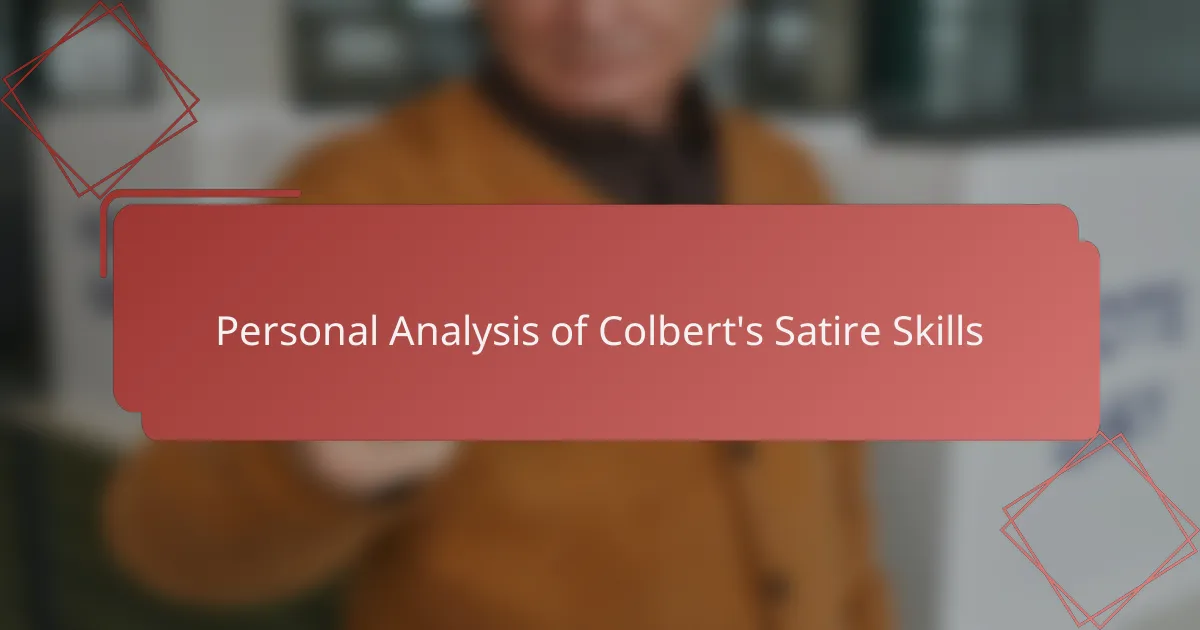
Personal Analysis of Colbert’s Satire Skills
| Aspect | My Take on Colbert’s Approach |
|---|---|
| Use of Irony | Colbert’s irony strikes me as sharply intelligent yet accessible, making complex political issues feel both relevant and sharply humorous. I personally find his ironic persona disarms viewers, encouraging reflection without direct confrontation. |
| Character Satire | The fake-conservative character he plays is a masterstroke in satire — it satirizes not just politics but media personas too. Watching it, I’ve often felt a mix of amusement and unease, realizing how convincingly it reveals absurdities in real political rhetoric. |
| Audience Engagement | His ability to engage viewers stands out; he invites us to question from within the show’s comedic frame. This personal connection makes the satire feel less like an attack and more like a shared joke that unveils uncomfortable truths. |

